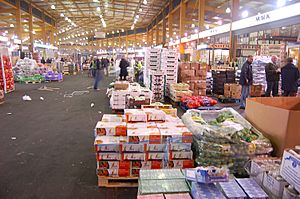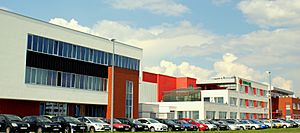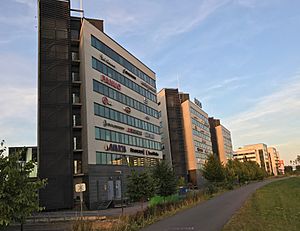Wholesaling facts for kids

Wholesaling is when businesses sell products in large amounts. They sell these goods to other businesses, not directly to the people who will use them. Think of it as buying things in bulk.
Wholesalers usually buy products straight from the people who make them. They get a special, lower price because they buy so much. Then, they sell these products to shops (called retailers). The shops then sell the items to you, the final customer, at a higher price. This way, everyone makes a profit.
The United Nations Statistics Division says that wholesaling is about selling new and used goods. This includes selling to shops, factories, or other businesses. Wholesalers often sort products, pack them, and then send them out in smaller groups. Some wholesalers, especially for food, work in special markets where many traders gather.
In the past, wholesalers were often close to the shops they sold to. But now, with the internet, many wholesalers are closer to where products are made. This is often in places like China or Taiwan. Wholesalers make money by keeping their buying and selling costs low.
How Do Taxes Work?
In the United States, wholesalers often do not charge sales tax. This happens if the business buying from them has a special license to resell the goods. If a business from another state buys from a wholesaler, they also usually do not pay sales tax.
Selling Directly to Customers
Instead of selling to wholesalers or shops, some companies sell their products directly. They might do this through their own stores or online.
One good thing about selling directly is that the company gets more of the money. They don't have to share it with a wholesaler or a shop. But it can be harder for them to reach many customers this way. Direct selling means the company sells right to the person who will use the product.
See also
 In Spanish: Mayorista para niños
In Spanish: Mayorista para niños
- Business-to-business
- Cash and carry (wholesale)
- Distribution (marketing)
- Jobbing house
- Supply chain
- Supply network



